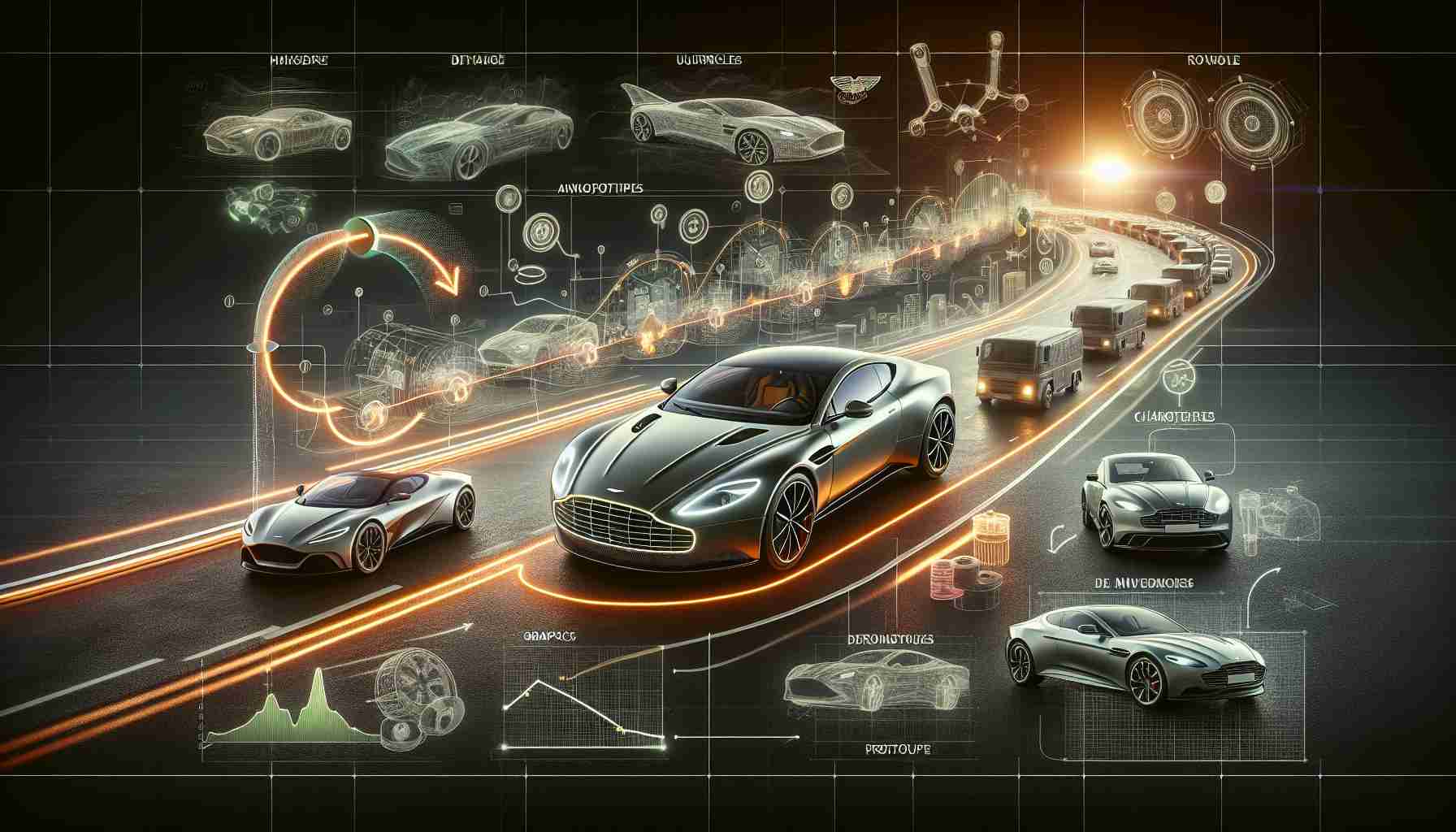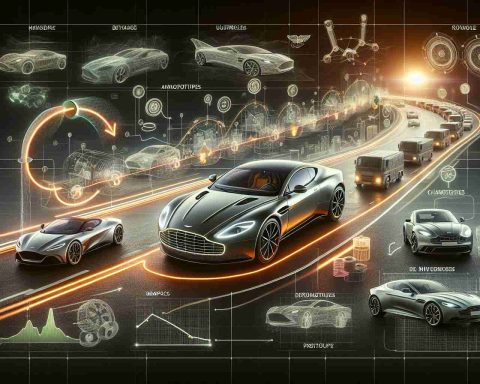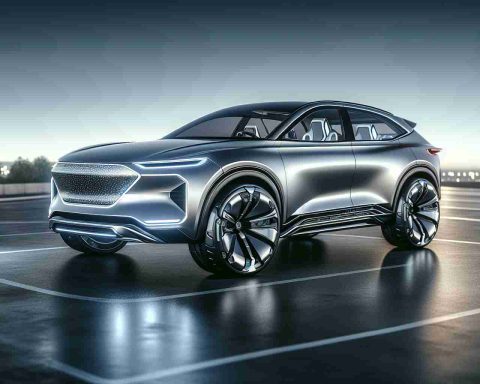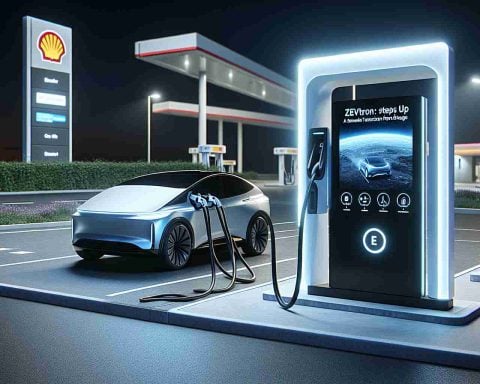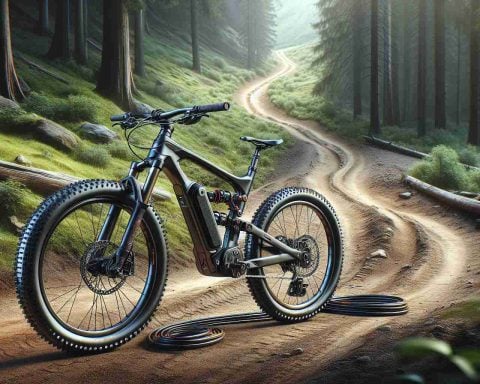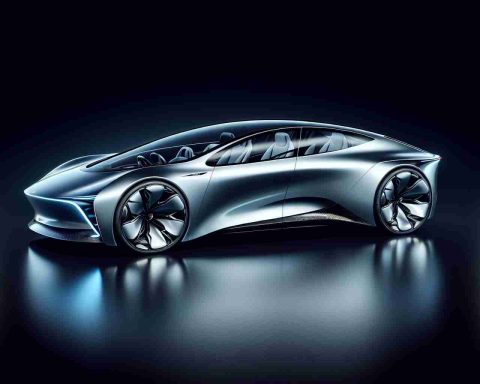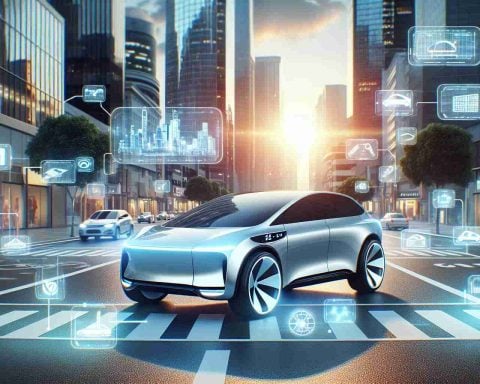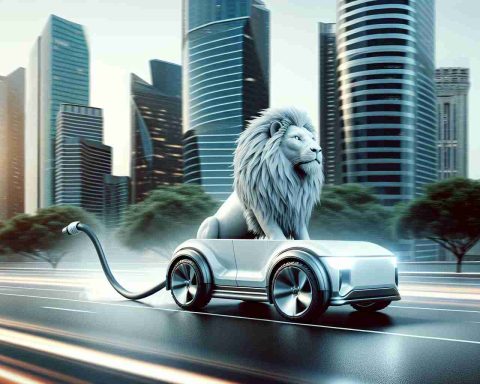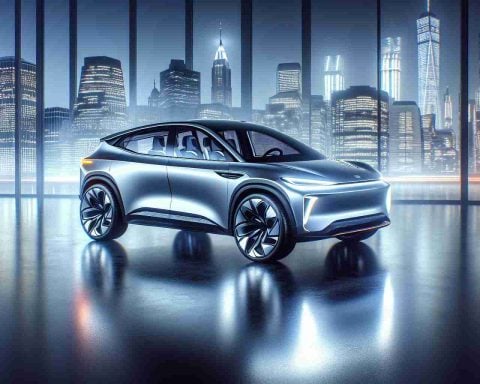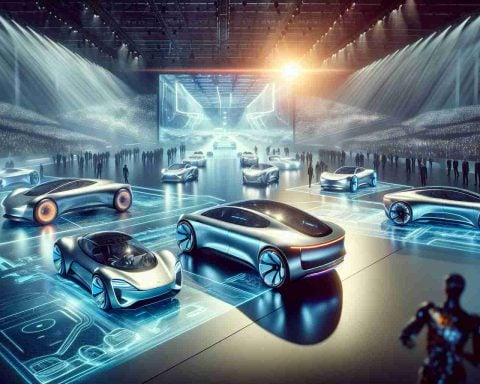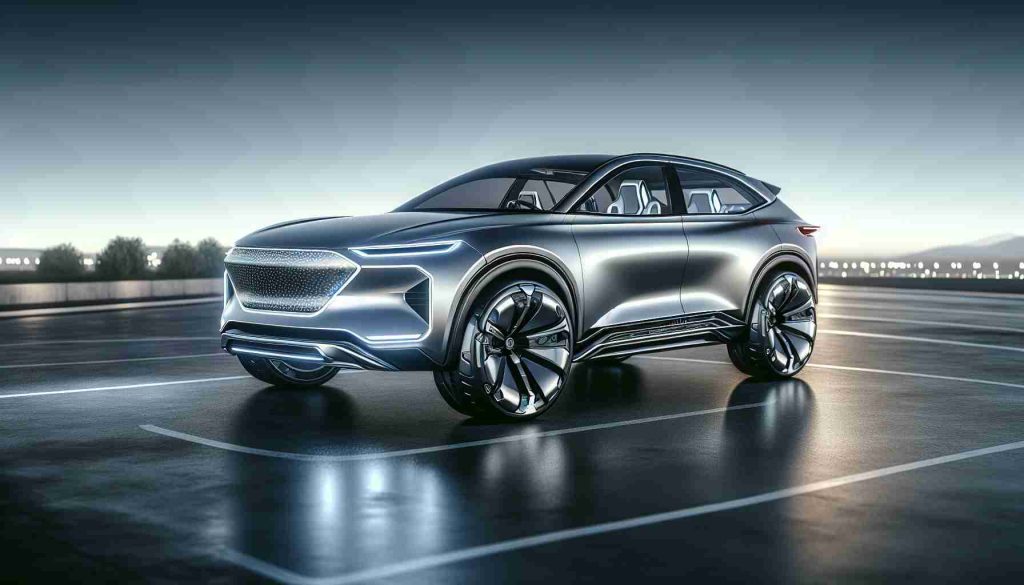- Aston Martin is at a crossroads, balancing tradition with innovation as it considers future electric vehicles (EVs), potentially launching by the late 2020s.
- The brand faces resistance from its affluent clientele, who cherish the classic V-12 and V-8 engines over quieter EVs.
- An increase in pro-EV sentiment among customers is noted, yet technical challenges such as heavy battery packs hinder sports car agility.
- Solid-state battery technology presents a promising solution with potential 30% weight reduction.
- Luxury brands like Alpina and Bugatti Rimac share similar challenges in reconciling heritage with innovation.
- Aston Martin aims to harmonize its legacy with technological advancement, carefully navigating the evolving automotive landscape.
Aston Martin stands at a pivotal crossroads, caught in the headlights between tradition and innovation. While the glimmer of a sleek electric vehicle (EV) seems destined for the road, it remains shrouded in uncertainty, now potentially stretching into the late 2020s. This storied marque grapples with weaving electrification into the tapestry of luxury without unraveling the threads that have defined it for generations.
The heart of this impasse lies in the passionate resistance of its affluent clientele. Firmly attached to the roaring symphony of their cherished V-12s and V-8s, the prospect of whisper-quiet EVs remains an unattractive melody to many. For these discerning buyers, electrification feels like a denial of the visceral experience they treasure.
Yet, the winds of change are undeniable. Aston Martin acknowledges a shift in sentiment, with an uptick in pro-EV enthusiasts among its ranks. The challenge lies not just in customer perception but also in the technical heft of EVs. Current battery packs, tipping the scales at an unwieldy 700 to 800 kilograms, cast shadows over the nimbleness expected of a sports car. Here, solid-state battery technology offers a tantalizing glimpse into a lighter future, promising a 30% weight reduction.
The struggle isn’t Aston Martin’s alone; echoes of similar pushback resonate from other luxury brands like Alpina and Bugatti Rimac. As the entire automotive industry veers towards electrification, Aston Martin faces a monumental task: harmonizing its rich legacy with the inexorable march of technology. The roads of innovation and tradition may soon converge, but for now, Aston Martin treads carefully, its path illuminated by the balance of customer desires and technological progress.
The Future of Aston Martin: Balancing Luxury Tradition with EV Innovation
Market Forecasts & Industry Trends
The shift towards electric vehicles (EVs) is more than a trend; it is becoming a mandate as global regulations tighten on carbon emissions. The luxury car market, led by brands like Aston Martin, is at a crossroads. The transition to EVs in the luxury segment is anticipated to grow significantly, with reports from McKinsey suggesting that by 2040, up to 70% of luxury vehicles could be electric. Aston Martin has acknowledged this trend and is preparing to introduce its own EVs to remain competitive and relevant.
Real-World Use Cases
Luxury car buyers are increasingly looking at EVs for not just sustainability reasons, but also for performance. Electric motors offer instant torque, a feature alluring to sports car enthusiasts. Aston Martin has the opportunity to redefine what a luxury sports car can be in the EV space by emphasizing superior horsepower and acceleration times, possibly even outperforming their internal combustion counterparts.
Reviews & Comparisons
When compared to its competitors such as Tesla and Porsche, who have already made significant inroads into the EV market with models like the Tesla Model S and the Porsche Taycan, Aston Martin’s delay could potentially impact its market position. However, the brand’s commitment to maintaining its luxury heritage means its EV offerings could target a niche market looking for prestige and exclusivity coupled with performance.
Controversies & Limitations
Aston Martin’s delay in embracing EV technology primarily stems from a clash between traditional brand values and modern environmental demands. Loyal customers, who are deeply attached to the visceral experience of a roaring engine, view the quietness of an EV as a drawback. Moreover, the current weight of battery packs poses a challenge for maintaining the agility expected from a sports car.
Features, Specs & Pricing
While specific details on Aston Martin’s future EV models are sparse, industry speculation suggests that they will incorporate cutting-edge technology like solid-state batteries to reduce weight. This new battery technology could potentially lower vehicle weight by about 30%, improving handling and efficiency. These vehicles are expected to carry a premium price tag, reflecting the advanced technology and luxury brand prestige.
Security & Sustainability
EVs generally offer advanced security systems and updates, often over-the-air, which could be a future feature of Aston Martin’s offerings. Sustainability-wise, transitioning to EVs aligns with global carbon reduction targets. The environmental benefit, in addition to potential cost savings on fuel, positions EVs as an economical and sustainable choice for the environmentally conscious luxury buyer.
Pros & Cons Overview
Pros:
– Instant torque and superior performance potential.
– Aligns with global sustainability goals.
– Potentially lighter and more efficient with solid-state batteries.
Cons:
– Loss of traditional engine sound and experience.
– Current battery weight challenges.
– Potentially higher upfront costs.
Insights & Predictions
As battery technology evolves, especially with the expected advent of solid-state batteries, the limitations of weight and efficiency are likely to diminish. Aston Martin, alongside other luxury carmakers, may soon win over even the most traditionalist customers by delivering an electrifying, yet unmistakably luxurious, driving experience.
Actionable Recommendations
1. Stay Informed: Keep abreast of the latest developments in EV technology, especially battery advancements.
2. Test Drive: Experience an existing electric sports car to understand the benefits it offers over traditional vehicles.
3. Future-Proof Investments: If considering purchasing a luxury vehicle, factor in possible advancements in EV technology which might soon provide even better alternatives.
For additional information about Aston Martin and their future plans, visit the official link name.
